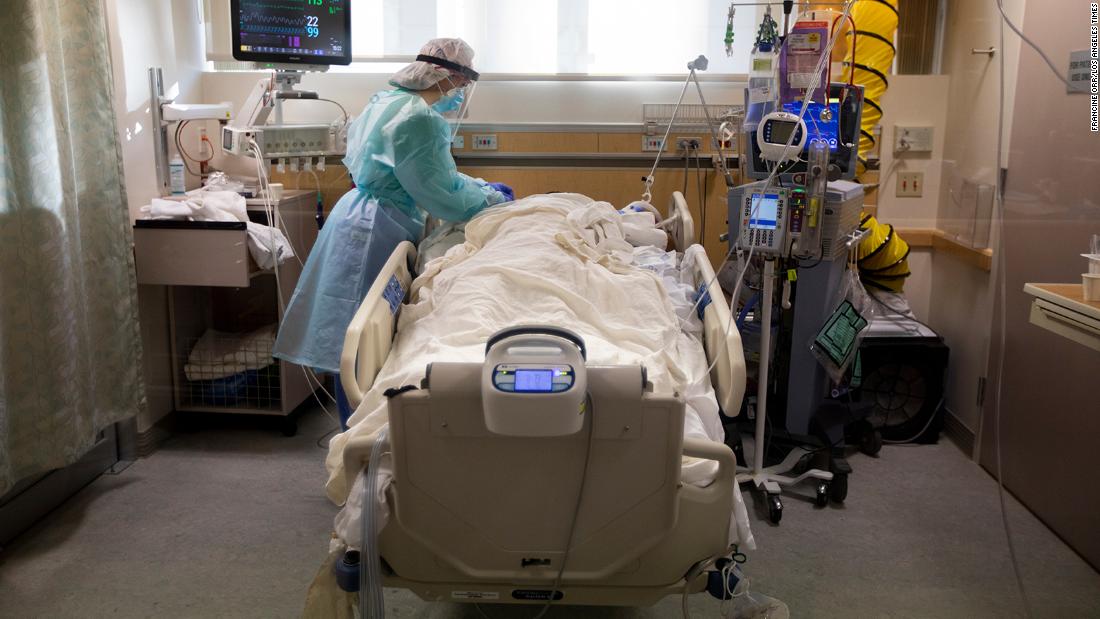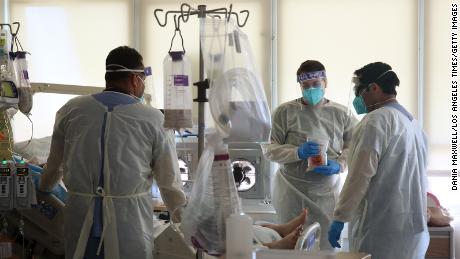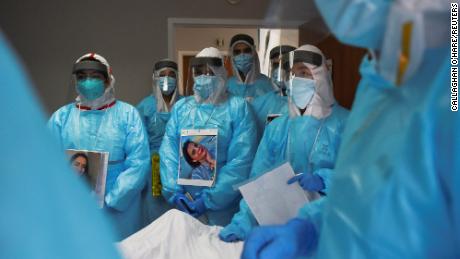Cases have skyrocketed after Thanksgiving. Impacts from Christmas are still unfolding
Cases have skyrocketed after the Thanksgiving holiday, and impacts from Christmas and New Year’s celebrations are still unfolding. As of Saturday, more than 20.4 million people have been infected with the virus in the US and at least 350,186 people have died, according to data from Johns Hopkins University.
And health experts worry what will happen to those numbers if infections continue to spread.
“This is about total collapse of the health care system if we have another spike,” said Dr. Brad Spellberg, chief medical officer at the Los Angeles County-University of Southern California Medical Center.
“And we, in the hospital, cannot stop that. We can only react to it. It is the public that has the power to put a stop to the spread of this virus by obeying the public health guidance that have been put out.”
In California, emergency room officials said hospitals are treating an unprecedented number of coronavirus patients.
Design and construction experts from the US Army Corps of Engineers have been deployed to the Los Angeles area to “evaluate and where necessary upgrade oxygen delivery systems” at about a half dozen hospitals.
One area hospital converted administrative offices and break rooms into treatment areas for their coronavirus patients, said Col. Julie Balten, commander of the Los Angeles District for the Corps of Engineers.
Vaccines being administered slower than expected
Federal government officials said they planned to vaccinate 20 million people by the end of 2020, but the results so far have fallen well short.
The Trump administration has pushed responsibility for administering the shots to state and local partners, which are already stretched thin by the pandemic, US Surgeon General Dr. Jerome Adams said Sunday.
“When you ask what went wrong, we have to understand that this virus also occurred in the midst of a surge and a lot of the local capacity to be able to vaccinate was being used for testing and responding to surges,” he said.
“We have to understand that it occurred over the holidays and people in health departments and in hospitals take holiday breaks too. But the good news is that we are seeing it quickly ramp up thanks to our state partners.”
Dr. Leana Wen, former Baltimore Health Commissioner, told CNN the federal government needs to take a more active role in the mass vaccination efforts.
“The problem is local and state health departments have been doing everything else in this response. They’ve been the ones figuring out how to ramp up testing and contact tracing and doing public education, and now we want them to also take on the duties of launching this massive vaccination campaign. They really need the assistance of the federal government,” she said.
The UK adopted that strategy in order to give as many people as possible the first dose as quickly as possible, saying that it affords some amount of protection.
“We make decisions based on data. We don’t have any data of giving a single dose and waiting for more than the normal period of time” to give the second dose, Fauci said.
A difficult start to the new year
As Americans rang in the new year, almost 11,000 families grieved the new loss of a loved one to Covid-19.
Arkansas reported more than 4,300 new cases Friday.
Texas health officials reported record-high Covid-19 hospitalizations across the state for the fifth day in a row, with more than 12,400 patients.
And Georgia announced a new record high of 8,769 new Covid-19 cases in the state Friday.
Gov. Brian Kemp said the Georgia World Congress Center convention center in downtown Atlanta has been turned into an overflow hospital.
New York added almost 16,500 new cases on Friday, only a day after it hit its highest ever one-day case count.
“As we start 2021, I encourage all New Yorkers to look to their better angels and continue the practices we know stop the spread of this virus – wash your hands, socially distance, and wear a mask,” Gov. Andrew Cuomo said in a statement.
CNN’s Eric Levenson, Chuck Johnston, Virginia Langmaid, Paul Vercammen, Holly Yan and Christina Maxouris contributed to this report.
![]()






